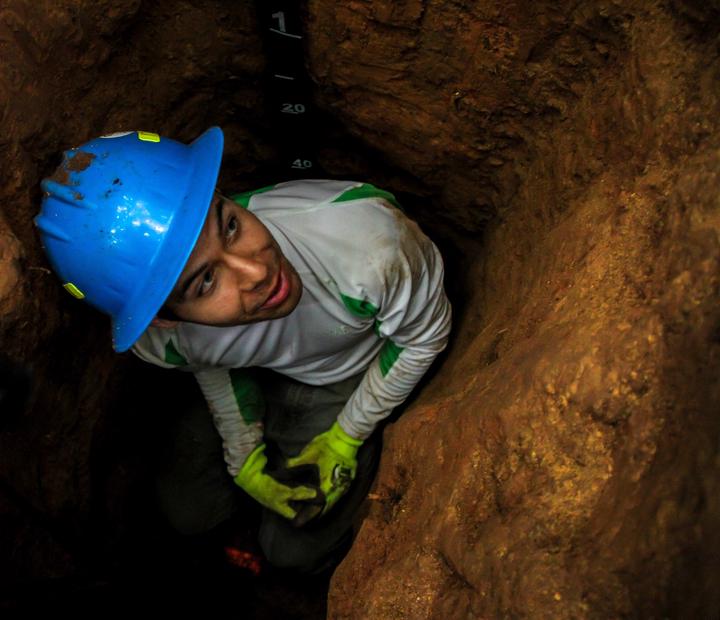My Roots
 I’ve been in so many soil pits I can’t remember exactly where this was taken. My guess is somewhere along the Oregon coast range. In hindsight, I doubt this was OSHA approved. Still fun though.
I’ve been in so many soil pits I can’t remember exactly where this was taken. My guess is somewhere along the Oregon coast range. In hindsight, I doubt this was OSHA approved. Still fun though.Picture Credit - Jeff Hatten (I think)
I grew up along California’s San Juaquin Delta within sight of plenty of windmills, cornfields, a Chevron oil refinery, and a gas power plant. Luckily, I had parents who thought it was cool to hike miles into the Sierra Nevada mountains, poop in holes you frantically dug, and sleep on the ground for fun! (aka backpacking) I was fascinated by how those huge pine trees seemingly grew out of pure granite rock. But the dichotomy of drinking sweet water from alpine lakes for vacations and returning to the “no swimming” Delta waters in my backyard was a bit confusing. That contradiction continues to inform my path today.
I studied soil science and geology at Cal Poly, San Luis Obispo where I spent as much time outside hammering rocks as I did inside analyzing soils. While at Cal Poly, I secured internships with the Forest Service in Alaska and Oregon using soils to develop long-term forest management plans. Leveraging data gathered from the Oregon internship, and with the help of mentors, I participated in my first true research experience co-authoring a senior thesis on how soil properties influenced forest management decisions.
It was about that time I discovered this thing called graduate school where you get paid to learn and try to discover new things. How cool is that?! The Forest Service internships in Alaska and Oregon helped me realize my love of forests and alpine systems that cover much of the West. As a result, I pursued a Masters Degree at Oregon State University researching a long-term forest soil productivity experiment.
Nearing graduation from that project, my adviser (Dr. Jeff Hatten) was lucky enough to be awarded a grant analyzing soil carbon and organic matter dynamics using the newly created National Ecological Observatory Network (NEON) that is expected to be in operation for the next thirty-years. The project was exactly the kind of regional-scale questions I was interested in, so I continued my academic career with Dr. Hatten through a soil science and forest management PhD program and presented my research in Fall 2022. The forests of the Pacific Northwest did not disappoint. One of my favorite adventure hobbies I picked up is to circumnavigate mountains in a single day, with Loowit - a stratovolcano in present day Washington - being one of my favorite runs because of how the ecology changes so drastically following the 1980 eruption.
While I’ve become deeply enamored by ecosystem sciences and terrestrial ecology, I may not remain in this field. I love understanding - on a biogeochemical level - how soils support global ecosystems, but I think the soil science field have too narrowly focused our intellectual attention and we’re missing the true impact of our knowledge. So instead, I hope to use what I’ve learned in my graduate studies and apply that to a more people-centered approach with an environmental justice framework.
I’m always searching for a career where I can weave together my broad science knowledge from my academic life, science communication skills from my podcasting and blogging days, and my set of personal values. I don’t exactly know how to do that yet. One thing is for sure, I am determined to leave Earth - and especially its people - in better shape than when I entered it.
Cheers,
~Adrian